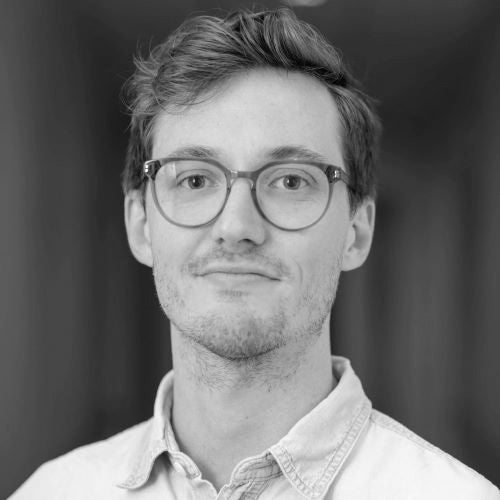Adrian Robins
Education
University of Virginia, Masters in Landscape Architecture
University of Oregon, B.S. Environmental Science
Biography
Adrian Robins joined the School of Architecture’s Natural Infrastructure Lab (NIL) as a Research Specialist shortly after graduating from the school’s Landscape Architecture Department in May 2024. In this new role, Adrian works alongside Associate Professor Brian Davis and project manager Ruby Zielinski on the Natural Infrastructure Innovation Project. This five-year undertaking, funded by the U.S. Army Corps of Engineers’ Engineering With Nature (EWN) Program, focuses on designing new forms of coastal infrastructure for the Gulf and Atlantic coasts.
Growing up five minutes from the beach along the Central Coast of California, Adrian experienced both the privileges and vulnerabilities of coastal living early on. He moved to the temperate rainforests of Oregon for college, where he studied plant biology, ecology, and environmental ethics. This was followed by two years in the mountains of western Nepal, where he served as a Food Security Specialist with the U.S. Peace Corps.
As a graduate student in the A-School’s MLA program, Adrian engaged with many opportunities related to regional coastal ecosystems, communities, and infrastructure, preparing for his new role at NIL. Besides coursework, he worked as a Student Research Assistant on the Preserving Coastal Parklands project with Davis and Assistant Professors Michael Luegering and Erin Putalik. As a 2023 Virginia Sea Grant Graduate Fellow, Adrian collaborated with Luegering (advisor) and the Agriculture and Research Extension Center on Virginia’s Eastern Shore to design coastal resilience strategies for vulnerable coastal farmers. Building on this work, he wrote his thesis with Putalik (advisor) titled, “Adaptive Approach: Leveraging A Creative Management Methodology for Coastal Resilience on Virginia’s Eastern Shore.”
Adrian is delighted to be among the curious, kind, and innovative minds that populate the students, staff, and faculty of the A-School. In addition to his work on coastal infrastructure, he continues to explore how landscape architecture can address both practical and conceptual challenges in today's world.

